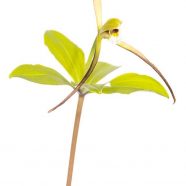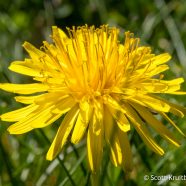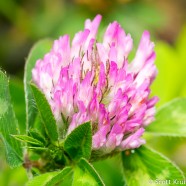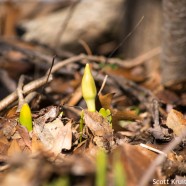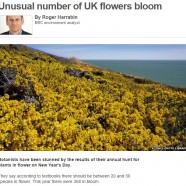Large Whorled Pogonia (Isotria verticillata)
Well, it only took Twan three years and several trips to find this beauty flowering, but last week it all paid off: meet the Large Whorled Pogonia (Isotria verticillata), one of the strangest-looking of our native orchids!
Read MoreDandelion Feast
The dandelion is one of the most widespread and widely known flowering plants there is, and while they may not be the best for agriculture or maintaining the “perfect” manicured lawn, they are very helpful for our early pollinators. Undoubtedly you have seen bees, butterflies and other flying insects feeding on them when there is little else blooming. Here’s to them! Besides, they’re pretty little things once you stop thinking about making the grass look “neat” and “tidy”. Scott Kruitbosch Conservation & Outreach...
Read MoreClover Up Close
In today’s episode of “Clover Up Close” we see the all too typically busy bee hard at work. Hey, it looks like you missed some of that pollen, come back! And please bring all of your friends…remember, if we build it, they will come.
Read MoreDaffodil Buds
Here we can see some daffodil buds fighting their way through the earth, emerging from the leaf litter despite the snow still present around them. More snow may end up coming down on our early flowers in the next couple of weeks. What is popping up in your yard at this point in the spring? Scott Kruitbosch Conservation & Outreach Coordinator
Read MoreClimate Change in the United Kingdom
Around 20-30 plants should be flowering on New Year’s Day in the United Kingdom. This year there were 368 species in bloom. Three hundred sixty-eight. That is a strong 15% of all flowering plants and comes after 2014 was the warmest year on record in the UK. Now THAT is some changing climate.
Read More



